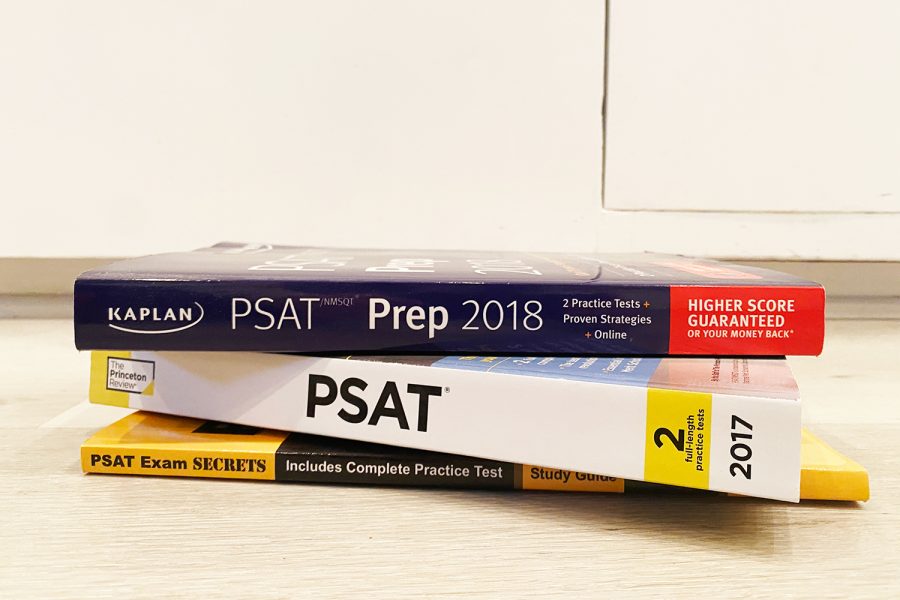Sophomore, junior class take at-home mock PSAT/NMSQT examination
Photo credit: Lola Lamberg
According to the College Board website, the PSAT/NMSQT and PSAT 10 “focus on the skills and knowledge at the heart of education.”
October 18, 2020
Sophomores and juniors had the opportunity to take a practice version of the PSAT/NMSQT, a standardized test which was administered through Compass Education Group on Oct. 14. The mock examination took place virtually due to COVID-19 with student’s self-scanning their answers and emailing them to Compass in order to receive scores.
The PSAT [Preliminary Scholastic Aptitude Test] scores are used by students and college guidance counselors to gauge college readiness as well as insights into whether the ACT or SAT is better fitted for a respective individual’s strengths and weaknesses. The PSAT is composed of three sections: Reading, Writing and Language and Math with a combined maximum score of 1520.
“I was excited for the PSAT because I need to get a better grip on which test, either SAT or ACT I want to take in the future,” junior Presley Sacavitch said. “I virtually got the same score on both tests last time, which put me in the ‘judgment call zone,’ so I’m just looking for some clarity so I can start the studying process,”
While Sacavitch expressed an eagerness to take the PSAT, Associate Director of College Guidance Ivan Hauck stated that there is a widespread “tendency for any kind of standardized test [to produce] anxiousness” in students. A study conducted in 2013 by the American Psychological Association found that approximately 83% of teenagers experience stress as a result of academic pressure.
“I was feeling pretty nervous — math is not my strongest subject and just the name alone adds an extra layer of pressure,” sophomore Alyssa Ponrartana said. “I also think that taking it at home is stressful because even though I am in a comfortable environment I didn’t have the support of my friends like I would if we were all taking it together at school.”
According to an email sent by Compass Education Group, score reports will be available to students one to three weeks prior to taking the exam.
“Now that the test-taking is over, all I’m waiting for are my scores,” Sacavitch said.” Last year we took the PSAT in October and didn’t get them back until December, so I’m hoping that we will have them back sooner, that way I can make my test plan.”
While standardized testing can be associated with stress, Hauck emphasized the fact that the PSAT is a low-stakes exam aiming to familiarize students with the content, structure and scoring.
“The keyword here is practice,” Hauck said. “This is a practice test, it has no bearing, no one is going to judge you or evaluate you. It is merely informational for the student, and for us [as] the counselor[s], to be able to examine what is going to be the best fit test for your learning profile.”













